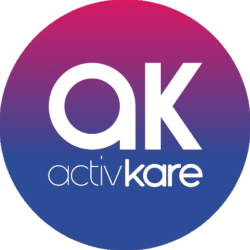Do you have family that you’re the primary caregiver for? Do you work as a registered home care nurse and take care of individuals daily? Whether you’re caring for your mom or dad as they age, or you take care of multiple people for your job, being a primary caregiver comes with ups and downs that can be difficult and rewarding. Not only are you physically keeping up with the demands of caregiving, but depending on the situation there can also be an emotional attachment, especially if you have a relationship with the individual.
Being a primary caregiver at the end of the day is one of the most wonderful things you can do for someone, whether it’s a loved one or not. You get to be the individual that brightens that persons day, makes them feel good about themselves regardless of the situation, and who is at their side during their time of need. Caregiving is an act of love and compassion that can make all the difference for someone, especially if they were the person who raised and nurtured you so you can show them the same love in return.
The positive feelings that come with being able to take care of someone is extremely rewarding. Whether you know the individual personally or not, the emotions that come from caregiving are extremely powerful. On the other side, there can be tough emotions to deal with when the person you’re caring for starts to decline in health. For professional caregivers, this is the hardest part of the job, but for primary caregivers at home, this can be one of the most difficult moments of life. There can be a lot of stress experienced during this time as you continue to care for the individual you know may not have much time. The caregiver can quickly decline in physical and mental health. The stress of taking care of an ailing person 24/7 puts their needs ahead of your own. Then the “what if’s” set in. What if I get sick, what if I fall, what if I can no longer care for my loved one? What then? Primary caregivers must have multiple plans set and shared with their medical professionals and other family members. Stress can wreak havoc on a person’s overall health and immune system. Currently wait times for extended in-home caregiver assistance and long-term care is more than two years in most areas, even PSW support could take months.
As a professional caregiver, communicating with the family about their loved one can be difficult depending on their health and condition. This in itself is an important aspect of the job as the caregiver can help give the family a sense of peace during these difficult times. When a primary caregiver is a family member, the emotions that take over can be overwhelming to deal with, on top of having to still work, take care of family, etc. The major pro to being a caregiver who is a family member is that you can give back to the person who dedicated their lives to keeping you safe and healthy. There is nothing more rewarding than being able to give that back to the person who cared for you.
Overall, being a primary caregiver isn’t easy whether you’re a family member or not, but it is extremely rewarding from both perspectives. At one point, every person will have to deal with an ageing family member, and so it’s important to remember that this is a universal experience and that you’re not alone. Being a primary caregiver at home isn’t for everyone, but that’s why there’s support in registered nurses and PSW’s who can offer their help and empathy when dealing with these tough situations. We at ActivKare understand the physically and emotionally demanding work that comes with caregiving, and want to acknowledge each and every individual who has been a caregiver during their lives. Thank you for all of your hard work and dedication to helping others and their families.
ActivKare carries a wide array of homecare products and has access to thousands more not listed on our website. Call us if you can’t find what you're looking for and allow us to help.

